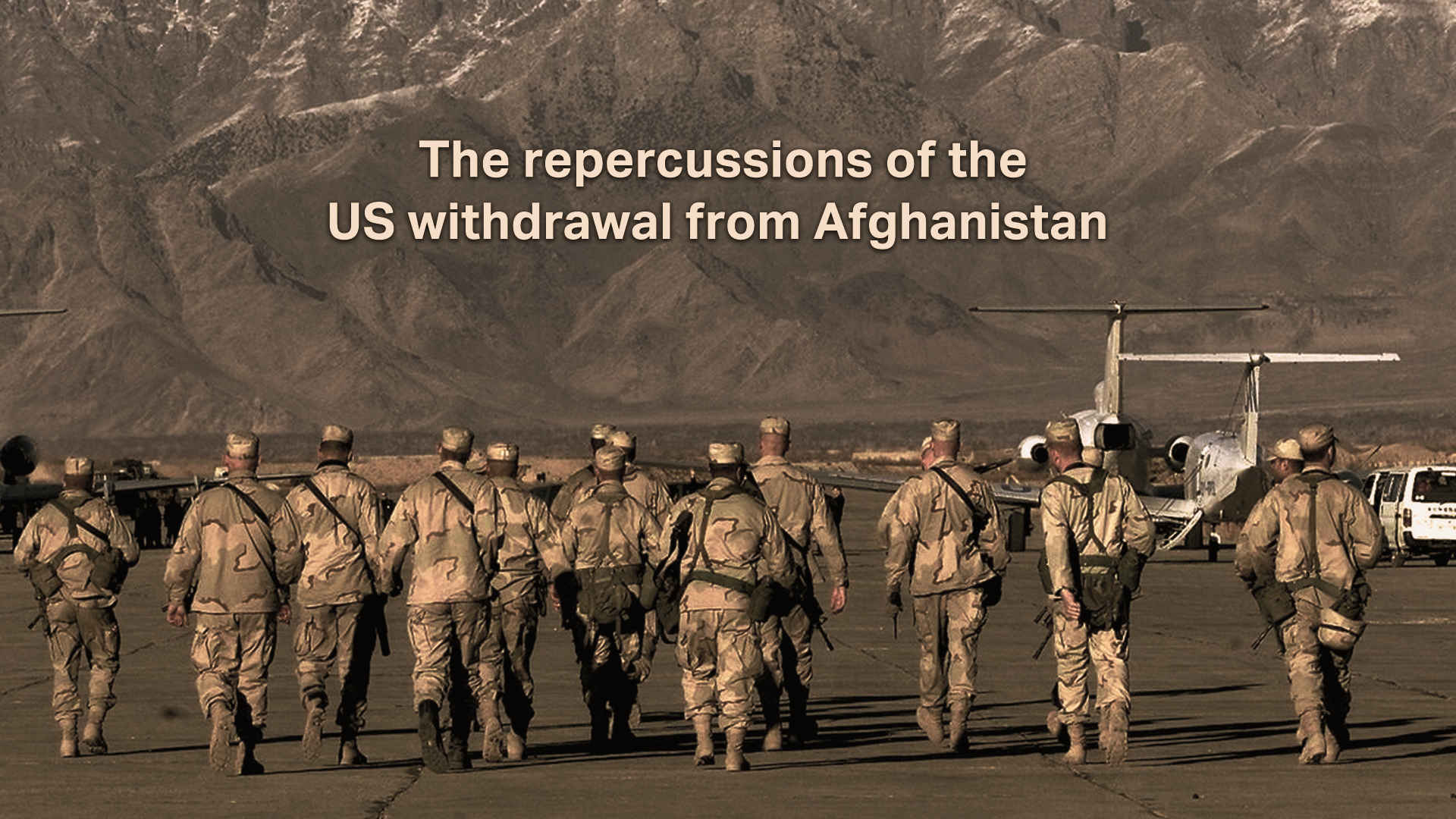The repercussions of the US withdrawal from Afghanistan

The initial analyzes of many analysts interested in American foreign policies dealt with the rapid American abandonment of Afghanistan as an extension of the policy of the West led by the US to abandon the allies despite the costs that amounted to nearly $20 trillion since the beginning of the missions of the American and NATO forces, and that this step was expected as a result of the changes that occurred inside the US, but if we look at some of the details that followed the US withdrawal, we can notice some justifications that have not been highlighted.
There is no doubt that there are American fears of the resurgence of al-Qaeda activity in Afghanistan, given that Afghanistan is the appropriate incubator for launching again and targeting the interests of the US, similar to the September 11 attacks, at a time when Taliban is trying to hide its clear ties to al-Qaeda, despite the efforts made by Taliban in the Doha agreement in 2020 to confirm that al-Qaeda was not involved in the attacks on the US. These fears of the center of the American decision-making may be within the context of the US seeking to launch a new phase in Afghanistan, that is, transforming Afghanistan into the largest sensitive focus in Asia, if not the world as a whole, by dragging the great powers into a long-term war of attrition. Also, for Afghanistan to be among the concerns of the neighboring countries, so that they will be preoccupied with the consequences of the expansion of radical movements, as the American withdrawal paved the way for a new reality that will have impacts on the entire region. Afghanistan today has become a magnet for radical jihadist movements, especially after the welcoming of the Taliban by the various movements in the Islamic world, as well as the attempts of al-Qaeda leaders in Iran to return to it.
Thus, the next stage in Afghanistan is among the concerns of the regional and international powers, including Russia, China and Iran, which had highlighted harsh reactions through diplomatic channels by rejecting most of the programs put forward by the administration of US President John Biden to deal with difficult issues and files on both the international and regional arena, which is represented by the Chinese economic expansion, the growing Russian influence on the regional arena, the Russian interventions in the countries in which Washington has a foothold, the increase in the pace of arms deals, and the failure to reach a consensual formula on the Iranian nuclear program. These indicators are likely to be that they pushed Washington to maintain a Turkish military base in the Afghan capital, Kabul, through which we can speculate that the steps that Washington’s ally within NATO may take to enter into a civil war, and satisfy Turkey by keeping it away from Russia after the rapprochement in several files.
Returning to the internal affairs, the statements made by Taliban leaders about not accepting American bases on the lands adjacent to Afghanistan, in reference to the exit of the American forces and the absence of any bases for Washington’s allies, as a result of the Taliban’s fear of the emergence of threats to their rule, and that the American forces will support them in the future, especially since there is a large and broad popular incubator against the movement and its radical tendencies, were the waves of immigration of the Afghans and the popular movement in Kabul airport during the evacuation process, and the presence of the Panjshir Province outside the control of the movement, confirm that Afghanistan is on the verge of an internal conflict, so that it is capable of fragmentation and entering into a civil war. The countries that see the Taliban as a threat to their interests will intervene in one way or another to achieve their goals in Afghanistan.
In the final analysis, as a result of the American withdrawal and the Taliban’s control over it, Afghanistan has become a sensitive focus of interest to all countries that used to see the American presence in Afghanistan as a safety valve against the expansion of jihadist factions, in addition to being a spot that gives hope and breathes life into terrorist movements and organizations around the world, which pose a threat and danger on the interests of the opponents of the US, so this American withdrawal came to shuffle the cards on the international arena with the aim of exhausting its competitors for global hegemony.




